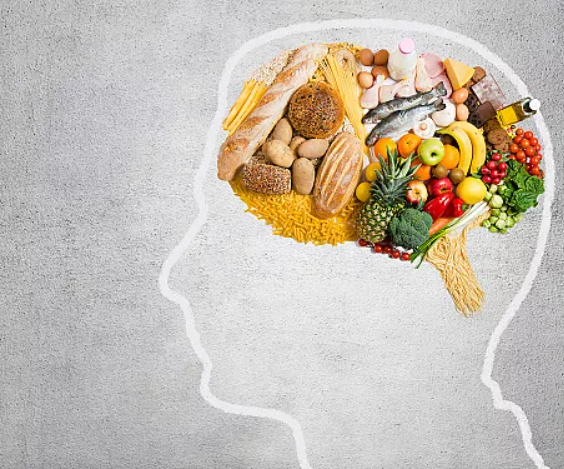Flaxseed, nuts and seeds have many health benefits. These foods are rich in fiber, protein and healthy fats. These foods can help you lose weight and lower your cholesterol.
Flaxseeds, nuts, and seeds can have many health benefits. These foods are rich in nutrients that can improve your overall health. Flaxseed is rich in fiber and omega-3 fatty acid.
Flaxseed has been shown to reduce cholesterol and blood pressure and also lower the risk of stroke and heart disease. Flaxseed may also be a preventative for cancer. Also, nuts and seeds are excellent sources of nutrients.
They are high in protein, vitamins, minerals and healthy fats. Like Omega-3s. A handful of seeds or nuts a day can improve your cardiovascular health, lower cholesterol levels, and reduce the chance of developing cancer.
If you are looking to improve your health, consider adding more flaxseed, nuts and seeds to your daily diet.
Credit: www.health.harvard.edu
What happens when you eat flaxseed daily?
Flaxseed is a great source of many health benefits. Flaxseed is a superfood, packed with fiber, protein and omega-3 fatty acid. Flaxseeds are high in fiber, which can help you stay regular and lower your cholesterol.
The omega-3s provide your body with essential amino acid and the protein helps to reduce inflammation. Flaxseed is a great addition for any diet because of all these benefits. What happens if you eat flaxseed every single day?
You might notice a better digestion, improved blood sugar control, less inflammation, and even weight reduction. You’ll also get an increase in essential nutrients your body needs to work at its best. Why not give flaxseed another try?
This could be the key to optimal health!
How much Flax Seed should you eat in a day?
When deciding how much flax seed to eat each day, there are many factors to take into consideration. The amount of flaxseed that you need will depend on your age, activity level, health, and other factors. Linus Pauling Institute recommends that adults consume between 19 and 38 grams of flaxseed per day.
You will need approximately 2-4 tablespoons whole flaxseed and 1-2 tablespoons ground flaxseed. You may need more flaxseed if you are pregnant or nursing. Before increasing your intake, consult your healthcare provider.
Flaxseed is rich in fiber and omega-3 fatty acid. Flaxseed also contains lignans, which are phytoestrogens. These have estrogenic and antiestrogenic activities in the body. Overeating flaxseed can lead to hormonal imbalance. It is important to consume it in moderation.
Start slowly, with just 1 teaspoon per day, and gradually increase as your body adapts. Flaxseed can be added to smoothies, oatmeal and yogurt as well as mixed into juices or water.
Can Flax Seeds Be Consumed Daily?
Flax seeds can be eaten every day. Flaxseed is rich in soluble and insoluble fiber that can aid with digestion and bowel regularity. Flaxseeds also contain lignans (PHytoestrogens), which are a type phytonutrient that can provide some health benefits such as cancer prevention.
There aren’t any recommendations for how much flaxseed you should consume each day. However, it seems that 1-2 tablespoons is a reasonable amount. Flaxseed can be added to your diet by adding it to oatmeal or cereal, as well as to smoothies and using it in place of eggs.
What does Flaxseed do for a woman’s body?
Flaxseed, a plant-based omega-3 fat acid, is also available. It also contains phytoestrogens, lignans. Flaxseed oil can be used as an oil substitute or in cooking.
Flaxseed has many health benefits. It can reduce the risk of stroke and heart disease, improve digestion, and relieve menopausal symptoms like hot flashes or night sweats. Research suggests that flaxseed may be able to prevent certain types, including breast cancer. Flaxseed could be particularly beneficial for women who are postmenopausal.
Flaxseed may help balance hormones, reduce hot flashes, and other symptoms that can be associated with menopause. Flaxseed’s lignans may also protect against breast cancer, binding to estrogen receptors and blocking excess estrogen. Flaxseed is a natural way for women to increase their health and relieve symptoms.
5 Nutritious seeds for good health | Dr. Hansaji Yogendra
Flax Seeds Benefits
Flax seeds are a great source of both soluble and insoluble fiber that can aid with regularity and digestion. Flax seeds are a great plant-based source for omega-3 fatty acid. These seeds are anti-inflammatory, which can be beneficial for people who suffer from conditions such as Crohn’s disease, joint pain and asthma.
Flaxseed can be added to your diet to lower cholesterol and triglycerides.
Conclusion
Nuts and seeds are the best foods for preventing and maintaining good health. Nuts and seeds are full of nutrients that can improve heart health, brain function, and even combat cancer. It can be difficult to decide which nuts and seeds to choose, with so many options.
Here are some of the healthiest nuts and seeds along with their benefits and essential nutrients. Flaxseeds, tiny brown seeds packed with nutrients, are a great choice. Flaxseeds are a great source of fiber, omega-3 fat acids, and antioxidants.
They have been shown by studies to improve heart health and reduce inflammation. They could also protect against cancer. Nuts, another nutrient-rich food, offer many health benefits.
Flaxseeds are high in fiber, antioxidants and healthy fats. The benefits of nuts have been demonstrated to improve your heart health and reduce inflammation and cholesterol. They could also protect against Alzheimer’s and type 2 diabetes.














Leave a Reply